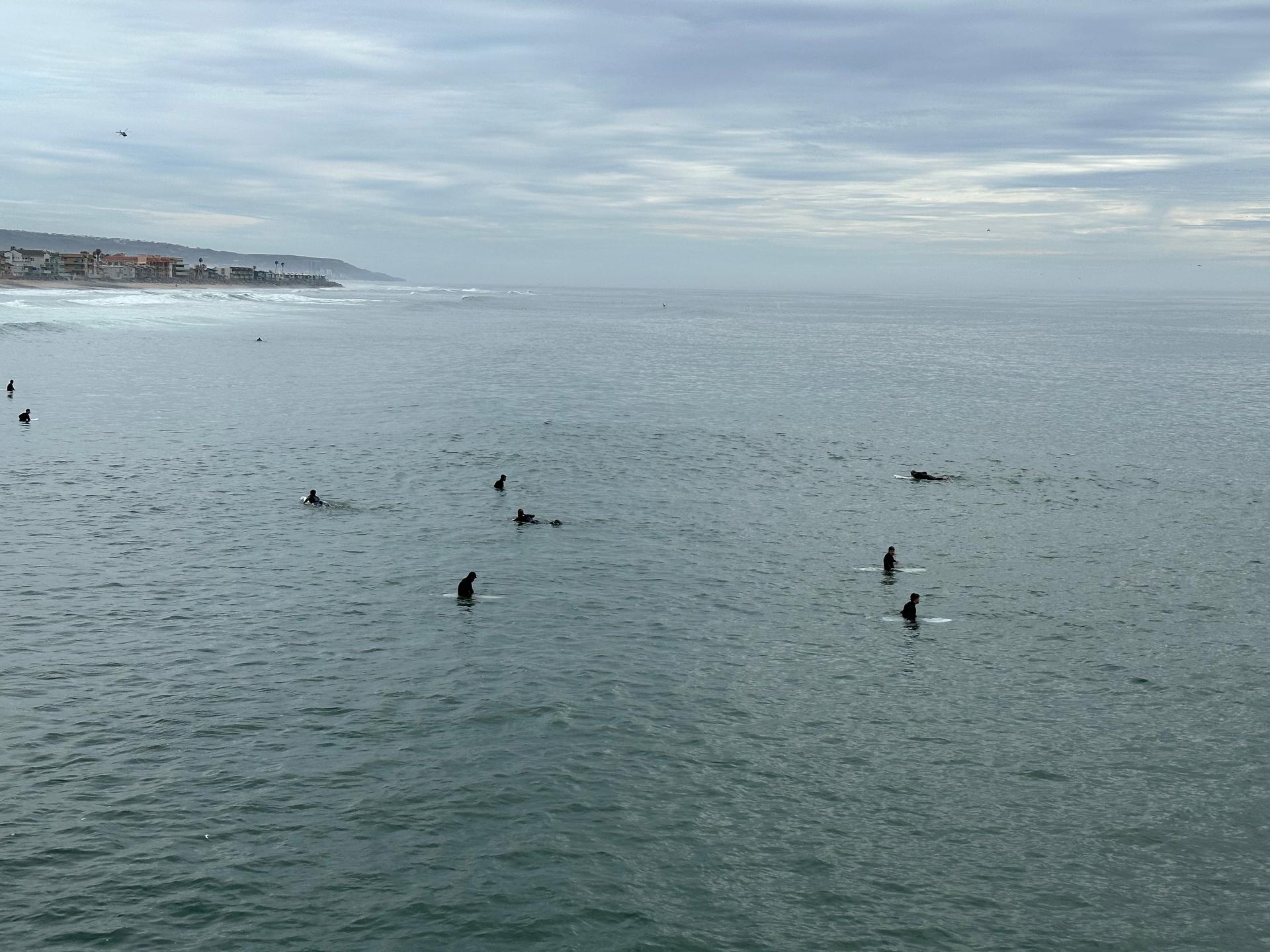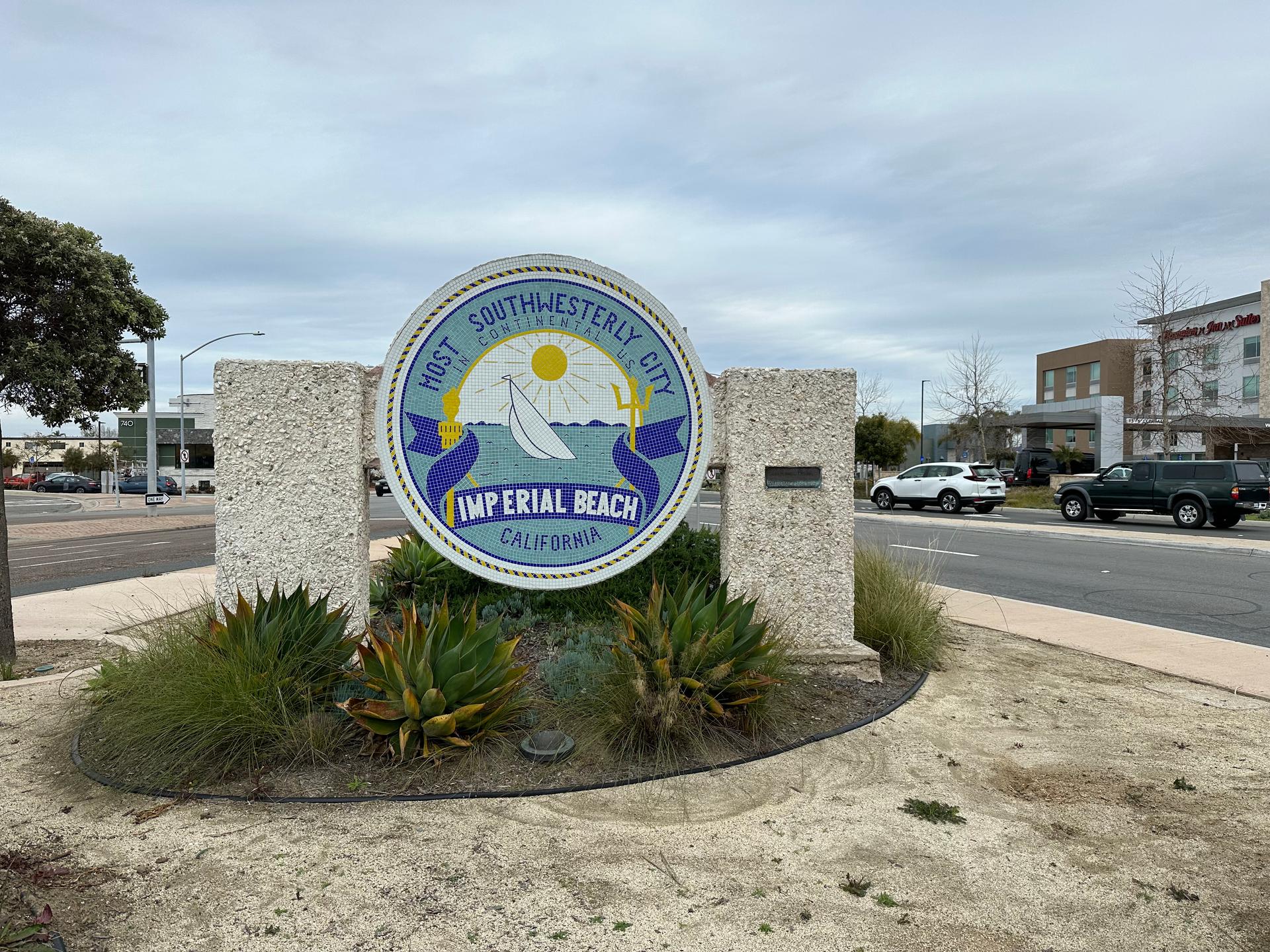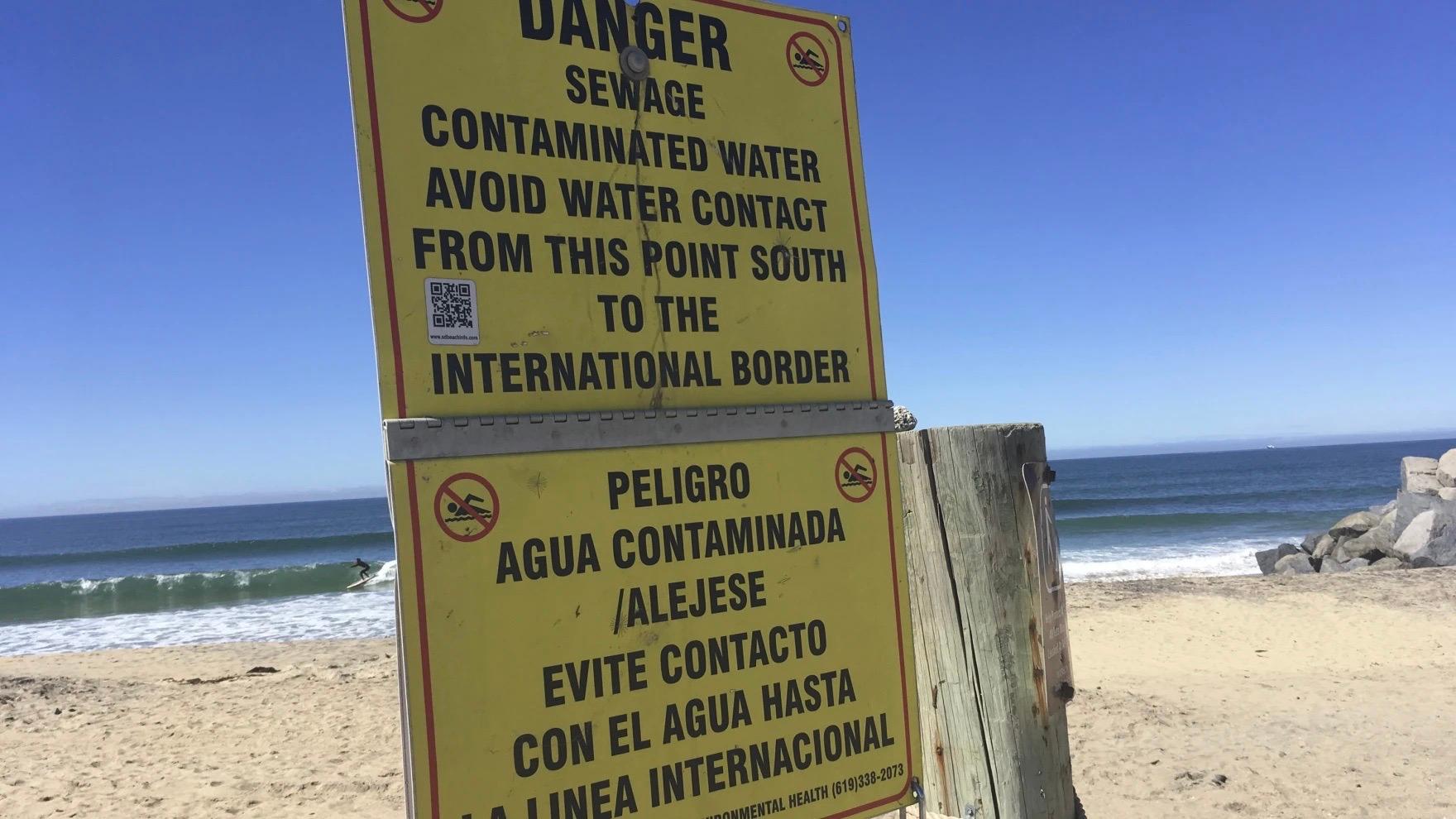A handful of surfers were out catching waves at Imperial Beach, California, the first US beach town north of Mexico, when the lifeguard station blasted a panic-inducing announcement.
“The water is currently contaminated, and we are under a 72-hour rain advisory. Lifeguards strongly recommend exiting the water,” the warning said.
Pollution and trash carried from the Tijuana River to the Pacific Ocean have long plagued swimmers and surfers on both sides of the US-Mexico border. But in recent years, particularly at Imperial Beach, it’s gotten worse. Some locals and experts are hopeful about its cleanup after a recent court settlement.

Toni Cunia, who strolled along the pier, said she has seen the issues firsthand.
“I used to live on the corner over here, so I know how bad it has gotten, and it’s breaking everybody’s heart. Because this was our playground,” Cunia said.
She gestured down the beach to where the Tijuana River flows into the Pacific.
“So much junk comes with it. It’s not just the water. It’s so much trash. So, yeah, it’s a problem, a major problem,” Cunia said.
And not just for swimmers: the paths along the estuary where the Tijuana River flows into the Pacific are a no-go-zone now, Cunia said.
It all starts with the Tijuana River, which collects rainwater from the surrounding watershed and flows only when it rains, explained Paloma Aguirre, who is the mayor of Imperial Beach and holds a master’s in marine biodiversity and conservation from UC San Diego.
The river discharges south of Imperial Beach, but it goes through the entire city of Tijuana before releasing into the ocean, Aguirre said. Along the way, it collects tires, trash, and worst of all, sewage.
As a result, Aguirre said, she has been unable to surf there since last September — which was what drew her to the area in the first place.

“A lot of us moved to IB because of its waves. It’s one of the core reasons I chose to live [here] in 2003,” she said.
The pollution is so bad that she’s actually gotten sick, “not by ignoring the signs, but by getting the impact of the plume that you don’t even know is coming sometimes,” Aguirre said.
A plume is a concentration of contaminated water that is prone to being dragged north by the current.
On the US side, the attitude has long been: “Tijuana, just clean up your act.”
But Margarita Diaz, who lives and works in Tijuana as executive director for the Environmental Education Border Project, said she thinks that criticism is unfair and ignores some fundamental differences between how things operate in the US and Mexico.
Tijuana is “a city with two countries, different economies, different politics and different realities,” Diaz said, adding that its economy “[doesn’t] have a lot of money invested for the infrastructure.”
Tijuana has long faced criticisms from the US that little has been done and nothing has changed. But Diaz said that Tijuana has barely kept up, given its rapid growth.
“The population in Tijuana, in 30 years, has increased by millions,” she said.
According to Diaz, the city has built some infrastructure, and the situation is the same.
“I don’t want to say that it’s OK. It’s bad. It has to be clean. I’m not saying that I’m happy with what Mexico is doing. No, we have to do more,” Diaz said.
The pollution impacts Tijuana’s residents, too. Diaz said the Tijuana city government, just over this past spring break, realized it had to protect its citizens and visitors and shut down its beaches.
The state of the beaches, she said, “is one of the most severe and egregious environmental injustices in the nation.”
Aguirre said she sees the pollution as a result of free-trade agreements that have led to the rapid development of Tijuana.
“This is a negative externality from the original NAFTA trade agreement,” she said. “We knew that we were going to see these environmental impacts associated with the free trade that was signed 20, 25 years ago.”
Some hope things may turn around with a recent legal decision.
The International Boundary and Water Commission (IBWC) and its Mexican counterpart are tasked with settling water disputes between the two countries. In a recent lawsuit by the Port of San Diego and two California border cities, the agency was instructed to do more to stop wastewater from flowing north from Tijuana.

According to the reports and Aguirre, the IBWC is committed now to more rigorously monitoring and mitigating the pollution in the water on the US side and better coordinating cleanup with their counterparts in Mexico.
Aguirre said that at least both sides are starting to listen to one another.
“Communication between both agencies is crucial but not easy,” she said.
“Because you have the most basic barrier, which is language. So, it’s kind of like they’re being compelled to do it. In the past, there wasn’t that much will to do it.”
Diaz said she also is cautiously confident that attitudes are changing in Tijuana and US towns like Imperial Beach.
“I hope that the governments share information and also the NGOs can help and we can move the things to a better place,” she said.
